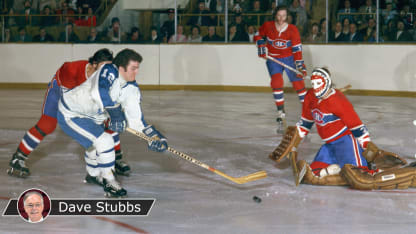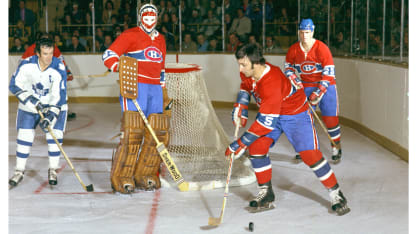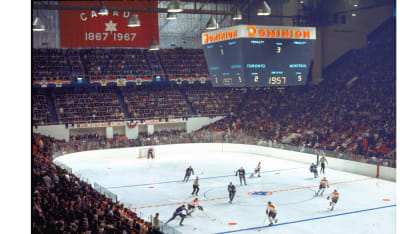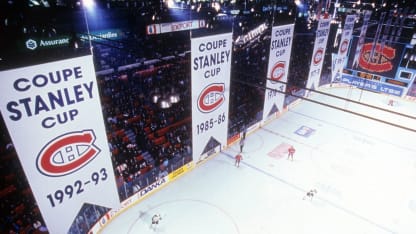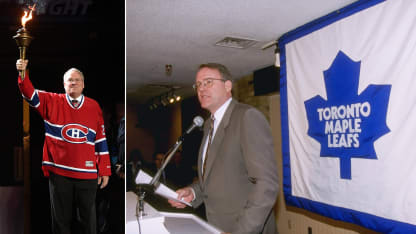Ken Dryden calls it "a rivalry of cities, a rivalry of cultures."
The Hockey Hall of Fame goalie has seen the duel between the Montreal Canadiens and Toronto Maple Leafs from each side, a legend in goal with the Canadiens during their glorious 1970s, a president of his hometown Maple Leafs from 1997-2003.
"All of a sudden now, Toronto and Montreal are playing a whole pile of games against each other," Dryden said. "There's a pretty good chance they're going to end up playing each other in a playoff.
"That hasn't existed in a long time. When together you're good and in sync and you add the circumstance of possibility… when preparation meets possibility, things can happen."
Because of issues crossing the Canada-United States border due to COVID-19 concerns, the Maple Leafs and Canadiens are playing in the Scotia North Division, grouping the seven NHL teams based in Canada. They are scheduled to play each other 10 times this season as part of the NHL's condensed 56-game schedule. That the Maple Leafs and Canadiens are as good as they have been in recent memory has set ablaze a historic rivalry that for decades has been mostly a flickering ember.
For the first time since the 1960s, Toronto and Montreal are among the best teams in the NHL at the same time. Dryden, an educator, author and historian, has been an important player in the rivalry and now, in a conversation with NHL.com, observes both its present and past with a learned eye.
Dryden's former teams played each other for the 750th time in Toronto on Saturday, the Canadiens scoring two third-period goals for a 2-1 come-from behind victory in Toronto. When they play in Montreal on Saturday (7 p.m. ET, CBC, TVAS, SN, CITY, ESPN+, NHL.TV), the rivalry will take the No. 1 rank for most regular-season games played between two teams, passing the Canadiens versus Boston Bruins by one.
The Maple Leafs and Canadiens are in a spirited battle in the Scotia North Division, Toronto (11-3-1) in first with 23 points, Montreal (9-4-2) second with 20 points.
Montreal holds a 360-290-88-12 lifetime edge in the rivalry, dating to their first game in 1917; the Canadiens have an 8-7 series advantage, 42-29 in games, in their 15 Stanley Cup Playoff series matchups. Almost incredibly, the two oldest teams in the NHL have not met in the postseason since 1979, a Quarterfinal sweep for the Canadiens on the way to their fourth consecutive championship.
Dryden played all 397 of his regular-season and 112 NHL playoff games for the Canadiens between 1971-79, having sat out the 1973-74 season to study law. He faced the Maple Leafs 34 times in the regular season and eight times in the playoffs, his lifetime record against Toronto a stunning 22-2 with nine ties, three shutouts with a 2.16 goals-against average and a .934 save percentage. In the postseason, he was 8-0 with a shutout, 1.90 average and .926 save percentage.
